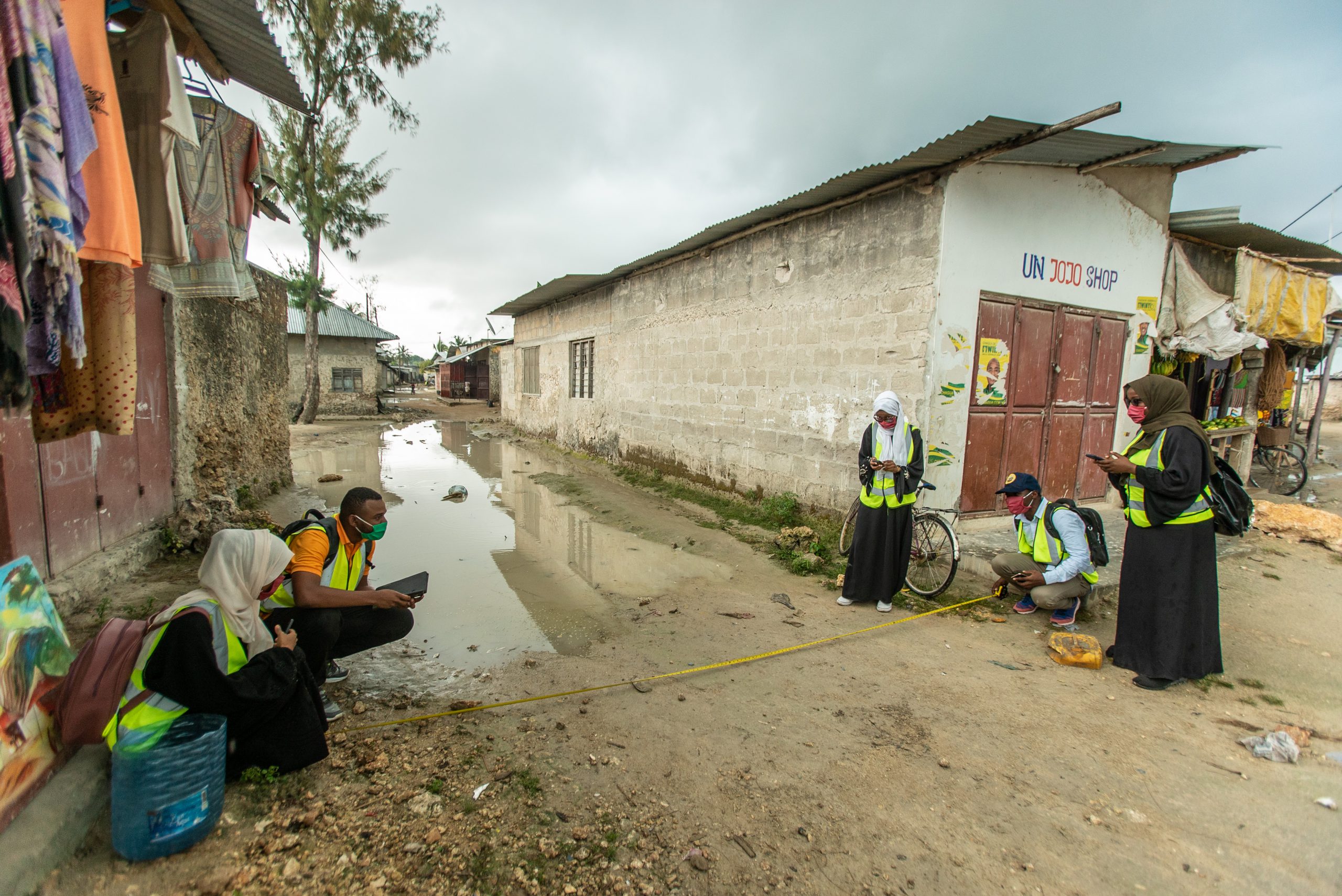Community Mapping Urban Risks in Mwanza
July 28, 2022Kenya Digital Public Works
November 30, 2022In 2020 and 2021, Spatial Collective provided mapping services for Zanzibar’s Nungwi, Chwaka, and Makunduchi settlements. The project fell under the broad framework of the Tanzania Urban Resilience Program and was meant to showcase how locally accessible, low-cost technologies can support resilience building and urban development planning by producing high-quality spatial information. Specifically, the assignment was meant to build the capacity of university students through an industrial training program and generate up-to-date spatial information to support urban planning in Nungwi, Chwaka, and Makunduchi.
On two separate occasions in 2020 and 2021, ninety students from the State University of Zanzibar participated in an eight-week-long industrial training program. During this period, the students learned about the theoretical and practical aspects of community mapping, including a wide range of soft skills such as communication and community management which are required in a realistic work setting.
In Nunwgi, using smartphones, handheld GPS devices, and high-resolution drone imagery, the students mapped over 600 businesses, 465 amenities, 4,000 trees, and over 38 km of roads. To update and improve the quality of the existing building dataset in Nungwi, they manually added 500 buildings to the digitized dataset of about 4,800, and also captured 62 tourism-related facilities, 99 restaurants, including entertainment areas, and 47 craft workshops. In the end, working with local historians in the area the students mapped 23 places of cultural significance.
Similarly, in Chwaka and Makunduchi, using the same technology and approach, the students mapped over 300 businesses, 500 amenities, 884 electrical infrastructure features, and over 50 km of roads. To update and improve the quality of the existing building dataset in Chwaka and Makunduchi, they added building attributes to over 7,500 buildings and captured 846 additional buildings.

During the program, the students gained fundamental knowledge in setting up mapping projects. At the same time, the datasets produced will benefit the Zanzibar Urban Services Project, the Department of Urban and Regional Planning, and other stakeholders as they undertake various urban improvement initiatives in the three areas.
Finally, the project showcased how the potential of innovative technologies paired with the local capacity can provide stakeholders with timely and accurate information.


